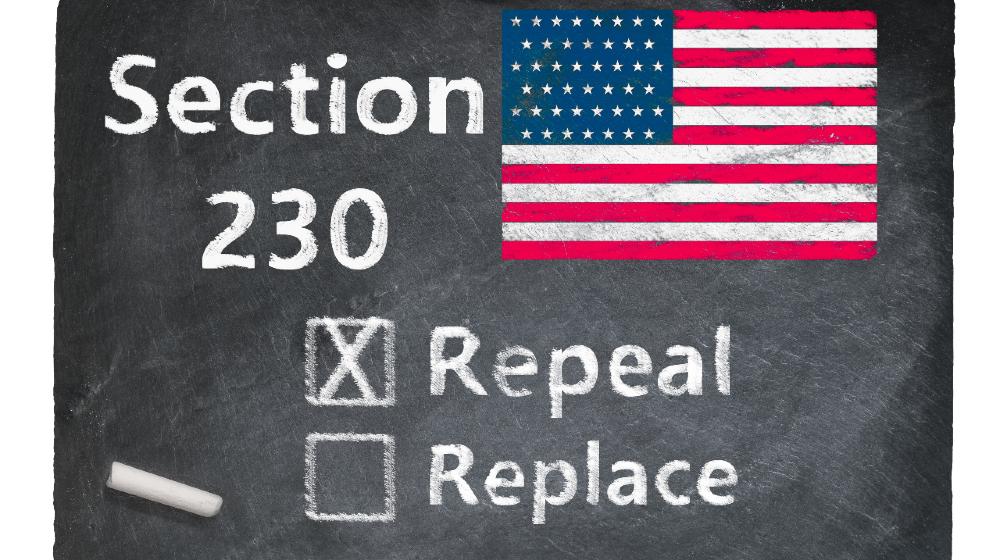Government
Proposed Changes for Section 230 Underway

Changes to Section 230 are likely, given the widespread attention social media commanded. The law, fully known as Section 230 of the Communications Decency Act (CDA) of 1996 protects online platforms from liability on what users say about them. One of the proponents for striking down the law is former President Donald Trump. In addition, President Biden also called for its revocation.
RELATED: Big Tech Firms Cut Ties With Parler
More than 20 Proposals
At present, there are more than 20 proposals to update the law from both Republicans and Democrats. Almost all say one thing: social-media companies should start assuming accountability for enabling cyberstalking, harassment, and discrimination within their platform.
Want to see the full article
Click here to read the full article on thecapitalist.com
While almost everybody is in agreement that the Section should remain, there is no consensus on what and how much change should happen. Many cautioned that any attempt to alter its language may lead to more unforeseen problems. In addition, do we really need to do it right now, when there are a lot more at stake?
Change, Not Remove Section 230
Meanwhile, heads of big tech companies such as Facebook’s Mark Zuckerberg and Microsoft’s Satya Nadella welcomed any move to provide clarity to the law. Then, Twitter CEO Jack Dorsey proposed a more “market-driven” approach in updating 230’s provisions. However, it remains unclear how to test an updated law. This process of even determining which is covered by free speech and which isn’t can take years to finalize.
In summary, Section 230 guarantees that companies are free from liability arising from user-generated content. As long as sites prove they aren’t knowingly helping commit crimes, they are in the clear. “Section 230 touches on everything from election integrity to online social-media bias,” noted Klon Kitchen, former director of the Center for Technology Policy at the Heritage Foundation. He added that trying to solve all the problems of the internet by changing this one law can lead to unintended consequences.
Problems with the Law
As noted in the name, the provision went into law in 1996. Back then, only 36 million people used the internet, with the majority coming from the US. Plus, the freedom from liability enabled the formation of Facebook and Google. It also helped spawn smaller competitors that grew big like TikTok and Parler. It also helped enable other businesses such as Airbnb.
Now, the internet has 4.8 billion users, which includes 90% of all Americans. This includes 72% that say that social media firms are too powerful and influential in politics. This ability to dictate what information users can consume and the protection Section 230 provides is what politicians worry about.
Damned If You Do…
Many Democrat lawmakers say that platforms often hide under Section 230. They see this as their shield while allowing users to issue comments or opinions that are close to being criminal. At the same time, many Republicans say that the same companies use Section 230 to enforce speech bans. How to expand or revise Section 230 is still up in the air.
“One of the reasons that haven’t happened is when legislators look at the implications of that, that juice isn’t worth the squeeze,” said Kitchen. Removing the law without an adequate, or even fuller, a replacement can spell trouble for big tech companies. Which can seriously affect the economy. Reverting to their pre-Section 230 laws means that sites and apps will become responsible for every word that appears on their site. Facebook, YouTube, Twitter, and others will need to stop moderating content, and open themselves for all kinds of vitriol. If they choose to moderate, they open themselves to lawsuits from user posts. A more likely outcome is narrowing the scope and volume of what’s allowed and not allowed on platforms.
Repercussions
Possible repercussions include a complicated filter before a platform allows users to share content. For search engines and businesses, this may mean an additional layer where someone vouches for every search result or business listing. While this may inconvenience existing big tech companies, the complexity can prevent the survival of startups.
Watch CNBC News where Senator Mark Warner says I think we'll have strong bipartisan support for Section 230 reform:
Do you agree that Section 230 should change? Or, should the First Amendment take over the internet? Let us know what you think about Section 230 and its impact on personal responsibility. Share your thoughts and comments below.













2 Comments
Social media has too much power they need to be stopped it may already be too late they are awful and the people that represent them are awful
Socialist media has gotten to BIG! They steel everyone’s information and then try to tell everyone what and how to think! It’s time to act NOW!!!!!!